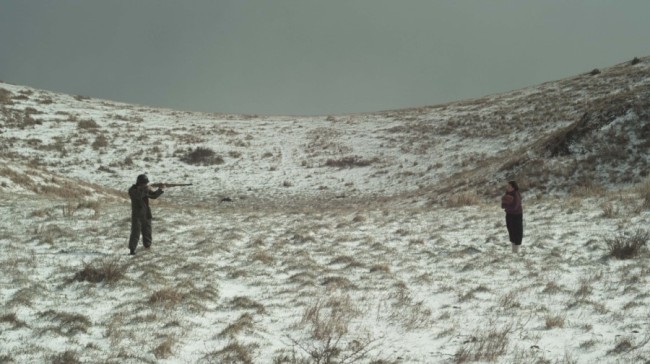Triumph of ‘Jiseul’ continues
After ticket sales pass 100,000 mark, indie film about 1948 Jeju Massacre gets wider release
By Claire LeePublished : April 18, 2013 - 09:46
After sweeping international film awards and hitting the 100,000-viewer mark last week, director O Muel’s independent film about the 1948 Jeju Massacre continues to attract audiences, earning additional screenings this week.
The film will be opening in 14 more theaters nationwide on Thursday to meet demand, according to the movie’s producer Japary Films.
“Jiseul” was initially released on March 21 in 56 theaters. The number of theaters screening the movie increased to 66 on April 11, and by last Friday more than 100,000 viewers had seen the film ― an unexpected record for a low-budget indie film.
The film will be opening in 14 more theaters nationwide on Thursday to meet demand, according to the movie’s producer Japary Films.
“Jiseul” was initially released on March 21 in 56 theaters. The number of theaters screening the movie increased to 66 on April 11, and by last Friday more than 100,000 viewers had seen the film ― an unexpected record for a low-budget indie film.

An artistic, black-and-white work by Jeju-based director O Muel, “Jiseul” tells the story of a group of some 120 villagers who hid from soldiers in a cave during the massacre. The real-life incident resulted in the death of some 30,000 islanders as the government sought to quell an uprising led by a small group of communist insurgents.
The film premiered at last year’s Busan International Film Festival and won a total of four awards there ― including the Network for the Promotion of Asian Cinema Award and the Citizen Critics’ Award.
In January, it won the Grand Jury Prize at Sundance Film Festival, becoming the first Korean movie to win the prestigious award. The film also won the top prize at this year’s Vesoul International Film Festival of Asian Cinema in Vesoul, France.
Since its local release in March, the film has been met rave reviews from audiences and critics, as well as cineastes.
“We should not credit this film just because it deals with the 1948 Jeju Massacre,” said filmmaker Park Chan-wook. “On top of paying attention to the historical event, this movie is a great artistic achievement. It’s very original and stunning.”
“This film offers a spiritual experience, rather than a cinematic one,” said film critic Jang Byung-won.
Director O is one of very few filmmakers who creates works about Jeju Island. All of his pieces, including “Jiseul,” were shot on his native Jeju, in the island’s dialect, featuring the lives of the locals. He studied visual art at Cheju National University and worked in Jeju’s performing arts scene before turning to filmmaking.
“Jiseul” is thought to be O’s grimmest work, noted for its exquisite, almost poetic cinematography. “Jiseul” means potatoes in the Jeju dialect. In the movie, it is the only food the villagers have and share while hiding together in the cave.
By Claire Lee (dyc@heraldcorp.com)



![[Exclusive] Korean military set to ban iPhones over 'security' concerns](http://res.heraldm.com/phpwas/restmb_idxmake.php?idx=644&simg=/content/image/2024/04/23/20240423050599_0.jpg&u=20240423183955)

![[Graphic News] 77% of young Koreans still financially dependent](http://res.heraldm.com/phpwas/restmb_idxmake.php?idx=644&simg=/content/image/2024/04/22/20240422050762_0.gif&u=)



![[Pressure points] Leggings in public: Fashion statement or social faux pas?](http://res.heraldm.com/phpwas/restmb_idxmake.php?idx=644&simg=/content/image/2024/04/23/20240423050669_0.jpg&u=)









